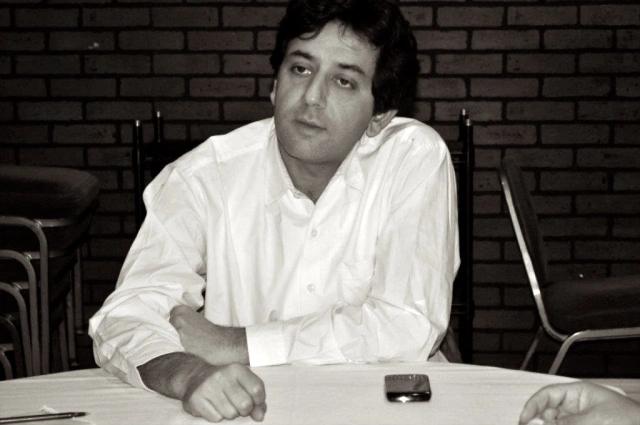Ali Dayan Hasan, Senior South Asia Researcher for Human Rights Watch, spoke to Raza Rumi about the blasphemy law.
What is your position on the blasphemy law and how is it viewed internationally?
The blasphemy law is a blot on Pakistan and brings disrepute to Islam. It is precisely the kind of law that reinforces, with good reason, negative stereotypes of Pakistan and Muslims. Because it is justified in the name of religion, it is difficult to explain to the world that this is a law imposed by a military dictatorship in the 80s for cynical political purposes and does not enjoy any “divine” sanction. It is our view that Sections 295 and 298 of the Pakistan Penal Code, which include the blasphemy law, should be repealed forthwith. The obscene consequences of these laws have been evident for decades through the continued criminalization and persecution of those the state ought to actually be protecting and failure to repeal makes successive governments, and the state itself, complicit in heinous discrimination and egregious human rights abuse.
But a substantial body of religious scholars argues that the blasphemy law is in keeping with Islamic jurisprudence…
It is interesting that political actors operating in the name of Islam, such as the Sunni Tehreek, the Jamaat-e-Islami and the JUI, take this position. They are cynically exploiting religion and encouraging social persecution and legal discrimination to seek political mileage. No serious religious scholar without a political axe to grind has spoken out in favor of these appalling laws. In fact, scholars such as Dr Javed Ghaamdi and Prof Khalid Masood oppose it vehemently. It is important to bear in mind that the imposition of these laws was a political not religious act, as is their defence.
Defenders of the blasphemy law argue that most of those charged under the law are Muslims and therefore it does not target minorities. What do you say?
It is true that the majority of those charged under the blasphemy law are Muslims. But an instrument of persecution does not become any less unacceptable because it is used against Muslims as well. The fact is that the law is used against some of the most disempowered sections of society – religious minorities, heterodox Muslims and the poor. But its effect on minorities is particularly dire as it effectively turns them into second class citizens, deprived of freedom of expression or belief. Further, the failure to address religious persecution by Islamist groups effectively enables atrocities against the vulnerable. Charges are seldom brought against those responsible for such violence. Our research indicates that the police have not apprehended anyone implicated in such activity in the last several years.
How do you think the government has responded to Aasia Bibi’s being awarded the death penalty?
The government’s initial response was encouraging. Punjab Governor Salmaan Taseer and minorities minister Shahbaz Bhatti spoke out in support of Aasia Bibi and suggested that President Zardari would pardon her quickly. There were suggestions that the government was considering amending the law to weaken its draconian provisions.
But the government appears to have lost its nerve in the face of a coalition of fringe extremist elements. Law Minister Babar Awan’s November 26, 2010 proclamation that “as long as I am law minister, no one should think of finishing this law,” was appalling. It is shameful that Awan, a PPP minister, is defending black laws imposed by the military dictatorship of General Zia-ul-Haq. Awan’s views run counter to the liberal, egalitarian ethos of the PPP and are a clear betrayal of the party’s stated positions, history and values.
But the government would argue that the Lahore High Court barred President Zardari from issuing the pardon…
There was no reason for President Zardari not to issue the pardon immediately, as he did in the case of Interior Minister Rehman Malik earlier this year. But he dithered. On November 29, 2010, three weeks after Aasia Bibi was sentenced to death, the Lahore High Court used Zardari’s hesitation to make an unwarranted and illegal intrusion into the executive domain. The LHC’s interim order is mind-boggling and unlawful at multiple levels. First, it is an order passed on an executive action that has not, in fact, occurred. Second, Article 45 of the constitution is categorical: “The President shall have the power to grant pardon, reprieve, and respite, and to remit, suspend or commute any sentence passed by any court, tribunal or other authority.” This, then, is a clear instance where the judiciary has failed to adjudicate within the framework of the law and has brought its own political and social prejudices to bear. An independent judiciary has to be held to the highest standard. It is time for the judiciary to address prejudice and incompetence within its own ranks and to dispense timely justice free of bias.
What further steps can be taken to seek an end to the abuse engendered by blasphemy laws?
Former PPP Information Minister Sherry Rehman has tabled an amendment bill that seeks to remove the most abusive provisions of the blasphemy law. Opinion-makers, civil society, concerned parliamentarians and other stake-holders should coalesce to support this bill. It may not be ideal, but it would be a start.



